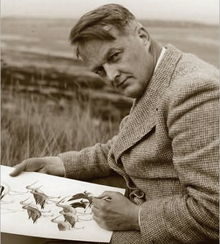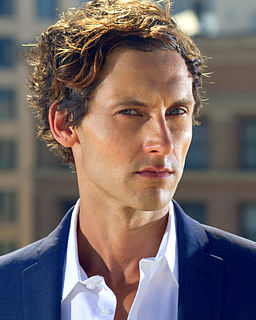A Quote by George Orwell
One of the effects of a safe and civilized life is an immense over sensitiveness which makes all the primary emotions somewhat disgusting.
Related Quotes
The mechanism of primary emotions does not describe the full range of emotional behaviors. They are, to be sure, the basic mechanism. However, I believe that in terms of an individual's development they are followed by mechanisms of secondary emotions, which occur once we begin experiencing feelings and forming systematic connections between categories of objects and situations, on the one hand, and primary emotions, on the other.
The love of money as a possession-as distinguished from the love of money as a means to the enjoyments and realities of life-will be recognized for what it is, a somewhat disgusting morbidity, one of those semi-criminal, semi-pathological propensities which one hands over with a shudder to the specialists in mental disease
The philosophy that I have worked under most of my life is that the serious study of natural history is an activity which has far-reaching effects in every aspect of a person's life. It ultimately makes people protective of the environment in a very committed way. It is my opinion that the study of natural history should be the primary avenue for creating environmentalists.
In my early life, and probably even today, it is not sufficiently understood that a child's education should include at least a rudimentary grasp of religion, sex, and money. Without a basic knowledge of these three primary facts in a normal human being's life --subjects which stir the emotions, create events and opportunities, and if they do not wholly decide must greatly influence an individual's personality --no human being's education can have a safe foundation.
Repentance out of mere fear is really sorrow for the consequences of sin, sorrow over the danger of sin — it bends the will away from sin, but the heart still clings. But repentance out of conviction over mercy is really sorrow over sin, sorrow over the grievousness of sin — it melts the heart away from sin. It makes the sin itself disgusting to us, so it loses its attractive power over us. We say, ‘this disgusting thing is an affront to the one who died for me. I’m continuing to stab him with it!’
Compared with this simple, fibrous life, our civilized history appears the chronicle of debility, of fashion, and the arts of luxury. But the civilized man misses no real refinement in the poetry of the rudest era. It reminds him that civilization does but dress men. It makes shoes, but it does not toughen the soles of the feet. It makes cloth of finer texture, but it does not touch the skin. Inside the civilized man stands the savage still in the place of honor. We are those blue-eyed, yellow-haired Saxons, those slender, dark-haired Normans.
The Great War differed from all ancient wars in the immense power of the combatants and their fearful agencies of destruction, and from all modern wars in the utter ruthlessness with which it was fought... Europe and large parts of Asia and Africa became one vast battlefield on which after years of struggle not armies but nations broke and ran. When all was over, Torture and Cannibalism were the only two expedients that the civilized, scientific, Christian States had been able to deny themselves: and they were of doubtful utility.
There are four pillars to happiness, which is the ultimate goal in life-to be happy. Health is first, family is second, home is third. That safe place where you can go to and regroup, be in a safe place by yourself start over. Those three things lead to the fourth pillar which is the hope and dream that tomorrow is going to be better. Without that you have not much at all.
It is all a question of sensitiveness. Brute force and overbearing may make a terrific effect. But in the end, that which lives by delicate sensitiveness. If it were a question of brute force, not a single human baby would survive for a fortnight. It is the grass of the field, most frail of all things, that supports all life all the time. But for the green grass, no empire would rise, no man would eat bread: for grain is grass; and Hercules or Napoleon or Henry Ford would alike be denied existence.







































